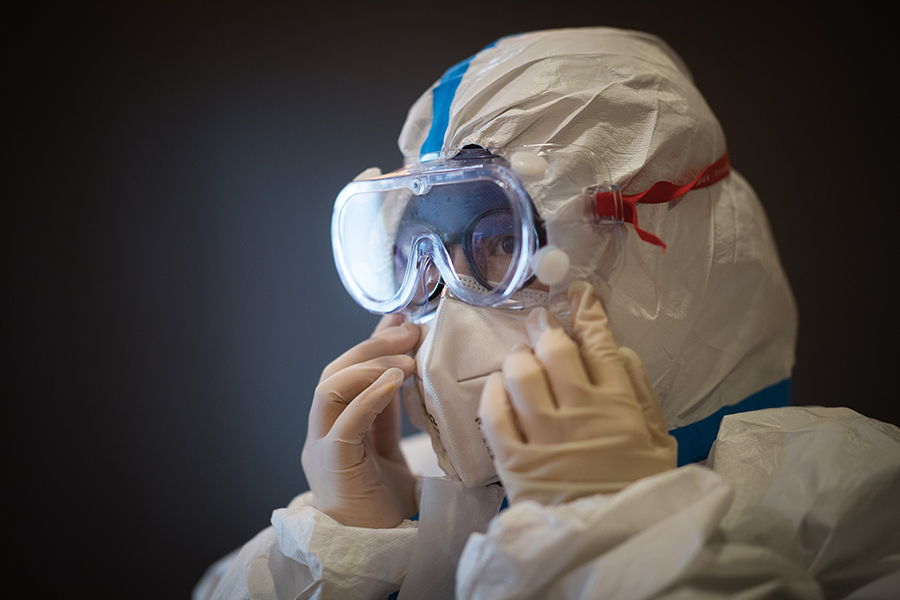What China has done to boost int'l cooperation against COVID-19
As solidarity and cooperation are the most powerful weapons to fight the pandemic, China has been boosting international cooperation in an open, transparent and responsible manner since the onset of the unprecedented health crisis.

Photo taken on May 16, 2020 shows medical supplies from China at Cairo International Airport in Cairo, Egypt. [Photo/Xinhua]
Champion of multilateralism
Chinese President Xi Jinping, in his address to the Extraordinary G20 Leaders' Summit in March, proposed that a Group of 20 (G20) health ministers' meeting be convened as soon as possible to improve information-sharing, strengthen cooperation on drugs, vaccines and epidemic control, and cut off cross-border infections.
He also proposed a G20 COVID-19 assistance initiative for better information-sharing and policy and action coordination with the support of the WHO.
In a phone conversation with Hungarian Prime Minister Viktor Orban on Friday, Xi said that China firmly supports the United Nations and the WHO in playing their due roles in international cooperation against the COVID-19 pandemic.
On the same day, he urged the international community to step up support for Africa's fight against the COVID-19 pandemic. There are currently 75,498 cumulative COVID-19 cases in 53 African countries, with 2,561 deaths, according to WHO data.
China, on top of paying its assessed contributions to the WHO on time and in full, has recently donated a total of US$50 million to the WHO to support its response to the pandemic.
Besides, Chinese medical teams have conducted some 400 training sessions in Africa to share its anti-epidemic experiences and have trained 20,000 local medical workers, said Chinese State Councilor and Foreign Minister Wang Yi on Monday.
As of mid-May, the Chinese government has provided anti-epidemic supplies to more than 150 countries and international organizations, held over 120 video conferences with more than 160 countries and international organizations, and sent 21 teams of medical experts to 19 countries.
Technical exchange
Since the beginning of the outbreak, China has not only promptly shared with the world such critical information as the whole genome sequence of the virus, but also its diagnostic and therapeutic experiences.
It has also established close technical-level communication mechanisms with international organizations such as the WHO, the European Union, the African Union and the Association of Southeast Asian Nations.

A member of the medical team of the Second Military Medical University puts on protective clothing at Hankou Hospital in Wuhan, central China's Hubei province, Jan. 27, 2020. [Photo/Xinhua]
Starting from Jan. 3, China has begun to inform the United States of the novel coronavirus outbreak and response measures on a regular basis. When an expert evaluation team from China's National Health Commission identified a novel coronavirus on Jan. 8, heads of Chinese and U.S. Centers for Disease Control and Prevention talked over the phone to discuss technological exchanges and cooperation.
By carrying out timely technical exchanges with the international community, such as the WHO, the United States, and countries in Europe, Asia and Latin America, Chinese scientists and health experts worked with their global peers to share their knowledge about the virus to help countries develop testing kits and adopt response measures.
Chinese scientists and political leaders have made efforts to help the world understand the virus and contain its spread, said Fabrizio Pregliasco, a researcher at the Department of Biomedical Sciences for Health at the University of Milan.
China sets "an excellent example of 'peer to peer' experience-sharing," said Maria van Kerkhove, technical lead for the WHO's Health Emergencies Program, adding that the WHO looks forward to seeing more direct interaction of that kind.

